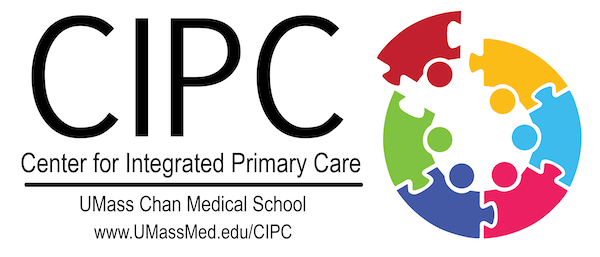Posted On: May 25, 2021

A Behavioral Health staff huddle at the Barre Family Health Center
Does more integration mean better healthcare? What if you work in a rural practice or in a busy practice in the center of a major city? Dr. Daniel Mullin and colleagues developed the Practice Integration Profile (PIP) to create a measure of integrated primary care that compares practices and monitors integration in a practice over time. Read the post by clicking on the title.
Posted On: March 08, 2021

Dr. Ethan Eisdorfer, a behavioral health provider at our Barre Family Health Center, analyzes a recent JAMA article about using non-specialist care providers to deliver brief mental health interventions to pregnant and post-partum women.
The most common types of non-specialists in these studies were midwives and nurses, but also included peers or community members, health visitors, and even family physicians. In many of the studies included in the analysis, professional mental health specialists served in a training or supervisory role without providing any direct care.
What would task-shifting like this throughout primary care practices look like? How might it change the efficiency and efficacy of current healthcare? Click on the title above to learn more.
Posted On: October 19, 2020

CIPC Director, Dan Mullin PsyD, MPH reflects on his role as a behavioral health practitioner in a clinic where Medication Assisted Treatment and Medications for Opioid Use Disorder (MAT/MOUD) are common. His clinical work is as a BHP in a rural clinic that has a substantial population of individuals and families impacted by substance use.
Click on title to read the full post.
Posted On: June 15, 2020
Learning to Fly: a journey into teaching and mentoring in IBH

In the midst of a world-wide pandemic, behavioral health needs have grown to epidemic proportions among many who have no history of mental illness, as well as those who have long experienced mental illness. In an analogy that many have used, it often feels like learning to fly while already in the air. From this perspective, I feel compelled, as a health psychologist trained in integrated care, to consider how mental health clinicians may find innovative ways to use their skills in assisting systems of care that need our guidance most.
Posted On: September 15, 2019

Late this spring the CIPC faculty read with interest a special issue of Journal of Clinical Psychology in Medicals Settings on “The Primary Care Behavioral Health Model of Integration”. One particular article caught the attention of CIPC Director, Daniel Mullin. The author, Adrienne A. Williams, PhD discussed in “The Next Step in Integrated Care: Universal Primary Mental Health Providers” the binary view of mental health, either a patient is mentally healthy or is mentally ill. The author cites examples of how this view reinforces stigma associated with seeking mental health services, even within current integrated care models.
Williams suggests as a solution, a primary mental health provider, “In contrast to the binary view, where some people are seen as needing an MHP and others do not, this model would be similar to the primary care model of health and would involve development of primary mental health providers (PMHPs). These PMHPs would be to mental health care what primary care physicians (PCPs) are to physical health care.”
Read More >
Posted On: April 04, 2019
 Our founding director, Dr. Alexander Blount, guest blogs about his new book, "Patient-Centered Primary Care: Getting From Good to Great".
Our founding director, Dr. Alexander Blount, guest blogs about his new book, "Patient-Centered Primary Care: Getting From Good to Great".
Sandy's 1998 volume "Integrated Primary Care: The Future of Medical and Mental Health Collaboration" is one of the foundational texts of the movement to acknowledge the importance of mental health to our physical well-being and to integrate behavioral health care into primary care. Click on the post title to read his blog post explaining how the new volume is the next chapter for IBH.
Posted On: October 26, 2018

New CIPC faculty member, Dr. Paula Gardinar is an advocate of Integrative Medical Group Visits (IMGV).
Seeing patients and families as a group is not new to behavioral health professionals, but it is a more novel approach when the issue being addressed is medical rather than behavioral or a combination of both.
Posted On: May 22, 2018

It is logical to ask if Motivational Interviewing can be an effective intervention for patients struggling with issues of weight and obesity. As with any chronic health condition, MI can be helpful, but it is not a cure. The question to ask is, “What is the target?”
Posted On: May 17, 2018

Primary care is an appropriate setting for managing many chronic conditions. Its longitudinal practice of medicine may seem ideal to handle this intractable issue. But modern PC practices are also fast-paced and mostly limited to brief encounters. Obesity cannot be cured in a fifteen-minute consult.
Posted On: April 17, 2018
 '
'
Opioid addiction is a national epidemic. Effective treatment options exist but are challenging to access, especially for patients who live in remote, rural areas. There is a long history of separation of treatment of addiction and medicine and a disconnect between primary care and treatment for opioid addiction. Our project has brought evidence-based treatment to a population in great need.
UMass CIPC recently partnered with an Accountable Care Organization in rural New York, Bassett Healthcare Network, to expand their provision of Medication Assisted Treatment. Our work together began in January of 2017 and was primarily delivered via video conferencing. This post was written by James Andersen, PhD a former behavioral health fellow at UMass Chan and a key partner in this collaboration.
